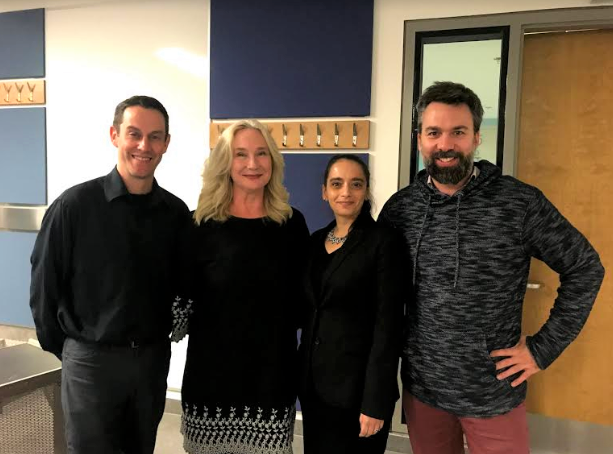In the last few decades, technology has evolved at a staggering pace and has become so deeply enmeshed in everyday life that removing it would throw society into shambles. While new technologies are immensely important to modern society, there is little regulation to keep mega-corporations like Amazon and Facebook in check. HackMcGill’s recent talk “TechTalks: Ethics in Tech” addressed these issues.
“AI & Machine Learning,” presented by Valentine Goddard, CEO of the Artificial Intelligence Impact Alliance
Artificial intelligence (AI) is often seen as a threatening invention that will devastate jobs and privacy, but, as with most innovations, it can be put to good use. Goddard’s work focuses on using AI and related technologies for social good. According to her, civil society organizations (CSOs), nonprofits working on issues such as human rights, social justice, and education access, can accomplish their goals much more effectively if they learn how to integrate AI.
“You have data already, so here’s an opportunity to create positive social impact out of [those] data,” Goddard said.
Potential positive applications of AI include University of Sherbrooke researcher Hélène Pigot’s work, which involves using AI monitoring systems to help the elderly stay safe in their homes. Further, Los Angeles-based project led by Milind Tambe identifies members of the homeless community who can best communicate information about AIDS to their peers.
“Smart Cities,” presented by Stéphane Guidoin, director of the Urban Innovation Lab of the City of Montreal
Tech companies are increasingly shaping the economy, and Guidoin is concerned about how they are trying to shape cities as well. Sidewalk Labs Toronto recently presented the IDEA (Innovative Development and Economic Activation) district, an elegant, futuristic conceptual city design that features a staggering amount of data collection; from tracking pedestrian walking speed to widespread video surveillance, anything is fair game.
“For me, the main issue […] is collecting data in the public space,” Guidoin said. “The notion of consent more or less disappears.”
Toronto citizens were not consulted about the potential design. Guidoin states that there is currently a large democratic gap and no easy way to discuss these issues with the people most concerned. Unfortunately, there are not any laws that prevent private companies moving forward at full steam.
“Security and Privacy,” presented by Allen Mendelsohn, internet law specialist and sessional lecturer at the McGill Faculty of Law
An expert on internet law, Mendelsohn’s life work will never be read—it’s hidden deep in those infamous terms and conditions that nobody reads.
“You, by clicking that box, are assuming that that organization is being ethical in everything that they reveal in that privacy policy,” Mendelsohn said. “I can assure you [that] they are not.”
Part of the reason for organizations’ lack of ethical behavior is the Personal Information Protection and Electronic Documents Act (PIPEDA), the current Canadian legislation that governs data protection. Mendelsohn described the legislation as ‘toothless’ compared to the EU General Data Protection Regulation, which provides governments the power to fine non-compliant companies. For those interested in reading the next terms and conditions they see, Mendelsohn recommends to simply searching for ‘third party’ to see who else is getting the information the user is giving out.
As private tech companies show no sign of stopping their expansion, moderator Karina Kesswewan, a lawyer who focuses on Indigenous rights, ended the talk by pointing out that it is dangerous to simply wait for companies to start regulating themselves or to assume that they will find it more profitable to behave ethically.
“What if it’s not?” Kesswewan said. “What if we prove that not caring about ethics […] is more profitable?”









